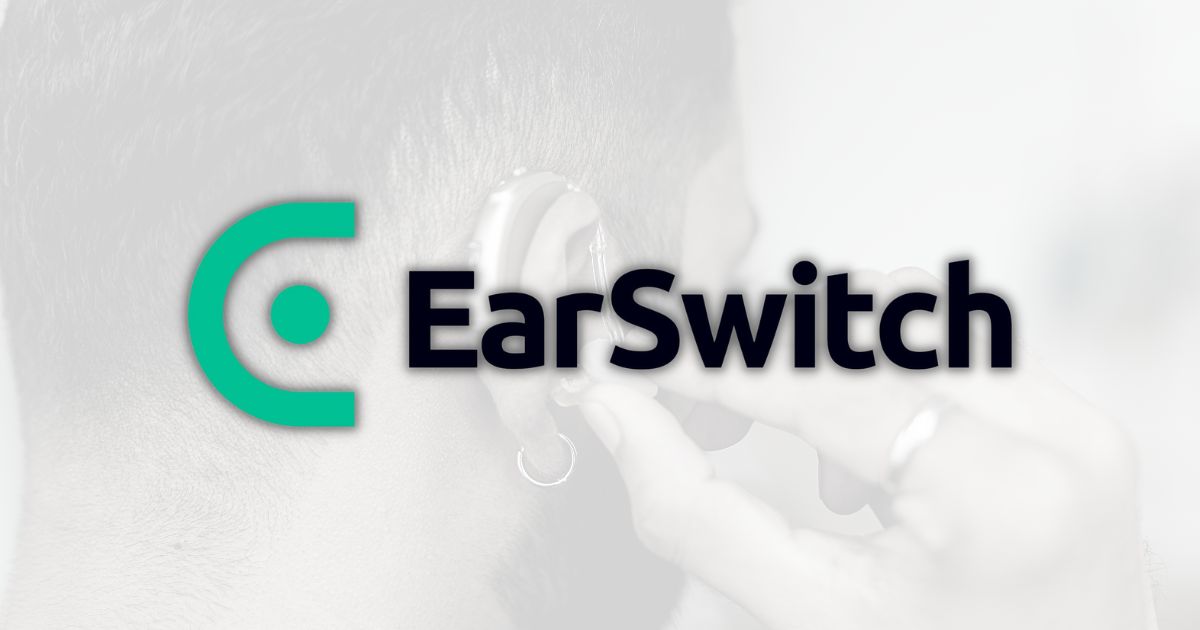BRISTOL, ENGLAND — EarSwitch has emerged victorious in the UKRI Healthy Ageing Challenge Grant competition, enabling it to advance its groundbreaking EarMetrics technology into standard hearing aids with integrated medical monitoring capabilities. The EarMetrics hearing aid will have the ability to gather essential health data such as blood oxygen levels, continuous blood pressure, heart rhythms, and temperature readings, all through the ear canal.
The implications of this technological advancement are set to potentially transform the landscape of senior care within communities. By enhancing hearing aid technology, medical professionals will gain access to a wealth of non-intrusive medical data. This comprehensive information will enable proactive support within virtual wards and assist older individuals in leading healthier and more independent lives.
Assisting the Further Development of EarMetrics Technology
EarSwitch plans to utilize the grant, along with a £1 million match investment led by Newable Ventures and Britbots, to integrate, test, and trial EarMetrics. The additional funding will facilitate the incorporation of three sensor types into the hearing aid mold. These sensors will provide standard measurements for heart rate, pulse waveform, breathing rate, central oxygen saturations, and the first-ever demonstration of cuffless blood pressure alternatives within an in-ear device.
“By augmenting hearing aid technology, doctors, care professionals and hospitals will be able to access a richer stream of medical data using a non-intrusive method which doesn’t involve multiple devices, cuffs or visual physical checks. This is particularly valuable for some members of the ageing population, who may be reticent to trial new wearable devices but are happy to wear hearing aids or are already wearing them. EarMetrics® will be a discreet integration which doesn’t require any behavioural or aesthetic changes for the wearer.”
Continuous monitoring of blood pressure and heart rate will serve as early warning systems, alerting healthcare providers to acute episodes and deterioration in patients at an earlier stage. Furthermore, the switch and sensor technology will grant healthcare staff access to valuable data that could potentially lead to earlier diagnoses.
Inclusive Health Monitoring
The company aims to ensure the technology is inclusive by eliminating potential barriers. Traditional medical monitoring devices, such as finger-clip pulse oximeters, have been known to yield inaccurate readings for individuals with darker skin tones. EarMetrics, on the other hand, will seamlessly fit into the ear canal and obtain measurements from an unpigmented area, thereby promoting inclusivity and addressing this concern.
EarSwitch has already demonstrated the effectiveness of its technology in pulse oximetry through successful seed investments. This progress was furthered through a UKRI Biomedical Catalyst grant-funded project in collaboration with the Health Tech Hub at the University of the West of England.
With plans for expansion, EarSwitch intends to grow its team based in Bristol, establishing a presence at the University of West of England’s Future Space. The company’s development thus far has been supported by the National Institute for Health Research (NIHR), in partnership with the University of Bath.
The NHS recognizes the pivotal role virtual wards play in its overall success, as evidenced by NHS England’s recent decision in March to establish the dynamic purchasing system (DPS) as the official procurement method for trusts acquiring equipment and systems to facilitate virtual wards and remote monitoring programs.
Source: EarSwitch






